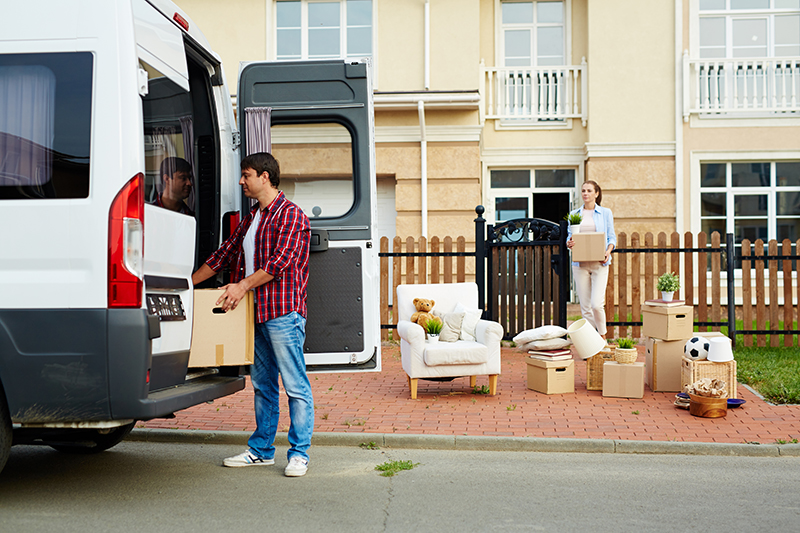Photo by Ketut Subiyanto On Pexels License CC0
All moves require careful planning, and that goes double for interstate moves. You’ll require to figure out whatever from how you’re going to transport your personal belongings to who you need to alert about your new address, with a lot of additional details to consider in between.
To help you link the dots, we’ve assembled this quick and extensive guide to interstate moving, which consists of whatever that you need to know for a smooth move to another state– including suggestions and advice along the way for making it as stress-free as possible.
Determine Where You’re Going to Live
One of the most significant challenges with interstate relocations is discovering a location to reside in your new city or town because that can be pretty challenging when you can’t just head out home or house searching face to face.
Whether you’re renting or purchasing, we suggest dealing with a local agent who is highly acquainted with the area and can assist you in the right direction.
Start your search early so that you give yourself sufficient time to research and compare your alternatives, and be sure to keep a close eye out for rental scams.
People looking for houses from out of state are top targets for fraudsters because they’re most likely to send out funds before in fact seeing a location. This is another reason why working with property or rental agents are essential.
Anxious about leasing or purchasing a location sight unseen? If you can’t make it out for a check-out before signing on the dotted line, think about going with a short-term rental rather than making a more long-term decision once you’re settled in.
Set Your Moving Budget
No guide to interstate moving would be total without needing you to take a step back and go into your spending plan. Moving to a brand-new state isn’t an inexpensive venture, and it’s extremely crucial that you set your expense expectations ahead of time so that you’re not stuck with any unwanted surprises.
Utilize our moving expense calculator to get a basic price quote of how much your interstate relocation might cost. And when setting a budget plan, make sure to account for all of the additional costs that you’ll require to tack on to your total. These include:
- Travel costs
- Storage fees
- Packing materials
- Packing services
- Liability coverage/supplemental insurance
As a general rule of thumb, the more things that you have to move the more your relocation is going to cost.
Donating, selling, and/or properly disposing of the items that you no longer want or require– or the products that will just be less expensive to buy as soon as you’re in your brand-new state– is a good way to decrease your general spend and make your interstate move more cost-effective.
Determine Transport Logistics
How you select to move yourself and your staff will depend largely on the moving budget that you’ve set.
The average cost for working with professional movers for an interstate move is $4,890, based on moving the belongings of a two to 3 bedroom house about 1,000 miles. (In contrast, the average cost of a local move is about 30% of the cost of that at $1,250.).
Rather go the DIY path? Leasing a moving truck for your interstate relocation will run an excellent offer more affordable– about $1,700 for a 10-foot U-Haul truck moving from New York to Miami, with a large price difference depending on who you rent from and what (if any) promos you can score. Use our truck rental center to search accessibility and rates in your location.
Another excellent choice is moving containers, which permit you to load and ship your things for significantly less than hiring a moving business.
They’re more pricey than rental trucks with an average cost that’s just over $2,200 and you’ll have to pay for your own travel accommodations individually, but it’s a bargain if you wish to conserve money on your move and not need to handle driving a moving truck across the country.
Make a Packing Plan.
There’s no time at all to squander when it comes to loading for your interstate relocation, given that it’s not like you can simply run back and forth to get your things from point A to point B.
You’ll need to make sure that everything is evacuated and all set to go on moving day, which everything you do not plan to bring has been offered, tossed, or donated.
Start by collecting your packaging materials. Our packaging calculator will help you determine what and how much you need– including boxes, tape, and loading paper– and we constantly advise getting a bit more than you anticipate using (it’s a lot easier to find and use for additional products than to make multiple trips to the shop).
Also, make sure to pack a basics bag, which has all of the important things you understand that you’ll need fast access to during and right away after your relocation.
This is an excellent suggestion for regional moves and a requirement for interstate relocations. Your basics bag needs to consist of things like crucial files, medications, chargers, fundamental toiletries, and a couple of changes of clothing.
If you’re moving with animals or kids, ensure they each have their own fundamentals bag too.
Establish Your Utilities.
You’ll wish to take steps to cancel your existing energies and set up your brand-new ones prior to moving day. While you can normally move utilities from one home to the next, it gets a bit complicated with interstate moves.
Many energy providers are area-specific, implying that the electric, gas, water, etc service provider that you use in your present home may not even operate in the state that you’re moving to.
Do some standard research to see what’s readily available and what’s not. For those utilities that you’ll have to cancel, you’ll likewise need to do a research study into your brand-new alternatives for service.
Talk to your property representative or future new landlord about what local utility services they recommend, then look up rates and set up dates utilizing your new address.
Call your existing energy companies and let them know what date you’ll require to cancel service– simply make sure you leave yourself electrical energy and heat or AC for move-out day itself.
When it comes to things like the internet and television, you might have an easier time transferring these services than you would with other types of energy. That being said, costs can vary considerably by area amongst these types of suppliers– even for the precise same packages. Do some cost comparisons to be sure you don’t overspend.
Alert the Post Office.
Utilize our guide to altering your address to set up your brand-new address with the U.S. Post Office. Do this before you move so that your mail is getting forwarded from the first day.
In addition to letting the post workplace know about your new address, you’ll also require to inform a couple of others, including your bank and credit card business, loan companies, insurance companies, and anybody with who you have automatic payments set up. Be sure to update buddies and households.
Move.
With all of the different pieces in place, it’s time to really strike the road (or the sky). If you’re driving, inspect the weather condition thoroughly and plan your whole route ahead of time so that you have a general idea of what to expect.
Account for stops for things like food and rest, and don’t try to do excessive too fast. Figure that you’ll have the ability to do about 8 to 10 hours of driving a day, bearing in mind that it’s okay to go slower and see the sights along with the method.
Get a New Driver’s License and Update Your Vehicle Registration.
Most of the hard work is over as soon as you’ve made it to your new state, but you’ve still got a couple of things on the to-do list. Some states give you as long as two months to get a new motorist’s license and upgrade your vehicle’s registration after establishing residency, while others require that you do it faster.
Some even need that you get it done right away. Be sure you understand what your new state expects so that you can get all of your documents filed and end up being a main citizen.





